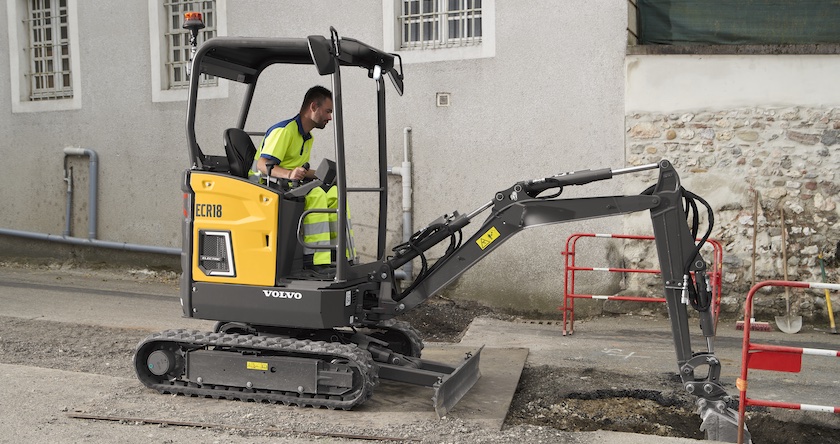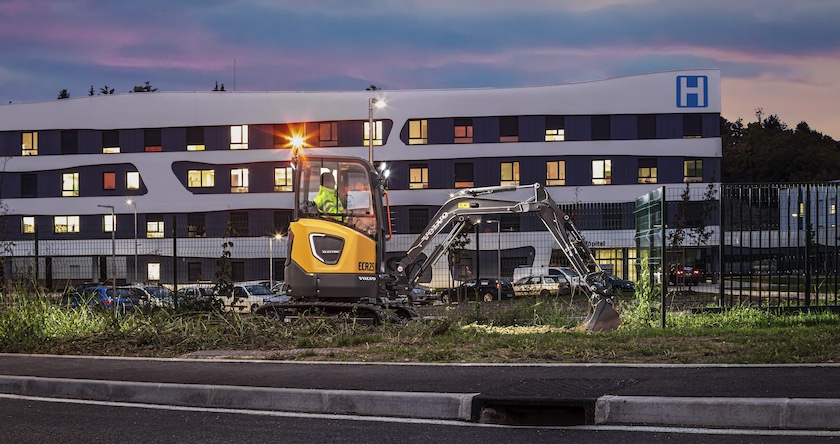Heavy Construction Equipment: Diesel or Electric?
Increasingly, contractors are faced with choices about how to feed a machine when they are buying or renting. Your company’s decision may come down to many different criteria, but one big factor may simply be noise. Noise ordinances are generally designed to limit the amount of sound that heavy equipment can make, especially in residential or urban areas. In certain situations, diesel-powered machines can be harmful and even harmful to people who live or work nearby.
As an example, some cities have noise restrictions near certain types of buildings, such as schools, hospitals, and courthouses, even during normal business hours. In areas with strict noise ordinances like these, diesel-powered heavy equipment may be subject to noise pollution restrictions or even outright bans. This could lead to fines or other penalties if noise levels exceed permitted limits.
In contrast, heavy electrical equipment is generally quieter, which could make it a more attractive option for working without disturbing nearby residents or businesses. For example, the Volvo ECR25 Electric Compact Excavator has far lower exterior noise levels than its diesel counterpart, making the electric machine nearly silent.
Noise ordinances and ordinances in the United States and Canada (federal, state/provincial and local) may affect your decision to purchase diesel or electric construction equipment in the near future. Here are a few examples to give you an idea of what’s out there, but keep in mind that rules vary by jurisdiction, so be sure to look them up in the areas where you work.
MEMPHIS, TENNESSEE
Sec. 9-68-2. – Excessive noise near the school, church, court or hospital.
(Code 1967, § 24-2; Code 1985, § 22-2)
The creation of excessive noise on any street adjacent to any school, educational institution, church or court while the same is in session, or adjacent to any hospital, which unreasonably interferes with the operation or sessions thereof, is prohibited.
In simpler terms, if there is utility work, landscaping needs, site development work, or other work near such businesses or organizations that needs to be completed during the day, motorized machines diesels may be too noisy to meet them. Electrical equipment, however, may be an option. For Memphis contractors (even the city itself), it’s worth the time to investigate the feasibility of quiet electric heavy equipment for work in these types of areas.

TORONTO, ONTARIO
§ 591-2.3. – Construction.
No person shall emit, cause or permit the emission of sound resulting from any operation of construction equipment or any construction which is clearly audible at a reception point: (1) from 7:00 p.m. to 7:00 a.m. on the following day , except until 9.00 h. Saturdays; and (2) all day on Sundays and legal holidays.
In Toronto, electric machines can help you work extended hours when diesel-powered machines probably won’t fit. They can give you a huge advantage in jobs with extremely tight deadlines: you could work early on Saturdays, Sundays, and even after 7:00 every evening. Smaller project work can be completed during these days and hours with noise restrictions to keep work moving forward and ultimately meet target completion dates.

UNITED STATES
HR4892
Here in the United States, the Noise Control Act of 1972 is a federal law that establishes a national policy to promote an environment free from noise that endangers the health and welfare of people. The act provides for the establishment of national guidelines for noise control and encourages the adoption of such guidelines by states and local governments.
An amendment to this law called the Quiet Communities Act was reinstated to enhance the federal government’s efforts to control and reduce noise pollution and to promote quiet environments in communities.
The United States Congress has found that approximately 28 million people in the United States have some hearing impairment, and an estimated 10 million of these impairments are at least partially attributable to damage from noise exposure.

As a result, the federal government and local municipalities continue to look for ways to reduce excessive noise in and around densely populated urban areas and noise-sensitive locations, such as workplaces near hospitals. Those who operate heavy electrical equipment are in a better position to bid for and win jobs where noise ordinances are in place.
THE ELECTRIC ADVANTAGE
Examples like these range from coast to coast across North America. The good news is that more electric machines are entering the market, and many government entities offer incentives or subsidies to companies that purchase heavy electrical equipment as part of their efforts to reduce noise and air pollution. For example, businesses may be eligible for tax credits or rebates for the purchase of electrical equipment, which could make it a more cost-effective option.
Ultimately, the impact of noise ordinances on the decision to purchase diesel or electric heavy equipment will depend on the specific construction noise regulations in force in a given area, as well as other factors such as the cost and performance of the various types of equipment However, it’s clear that noise pollution control is becoming an increasingly important issue for communities across North America, and companies that invest in quieter and cleaner equipment may be better off positioned for long-term success.
If you’re interested in finding out what incentives are available in your area, talk to your local Volvo dealer, who can work directly with you to find what you need.
You can also check out this handy database of federal, state/provincial and local noise ordinances that detail what to follow when working in major urban areas in both the US and Canada (we found some of the links obsolete, but we simply searched). these ordinance titles using a search engine). Be sure to also refer to the EPA Noise Control Act summary.
Ordinances like these mean Volvo electric machines can allow contractors to work longer hours in a day, even when working near churches, hospitals, schools and more, and almost every city would allow an immediate exemption from ‘these statutes once requested locally. Proactive and reasonable control of noise from construction equipment results in happier communities and successful, on-time projects with minimal noise disturbance. It can also eliminate the hassle of civil penalties, abatement orders or stop work orders. Be sure to check the list of noise ordinances in your area.
By Nick Tullo

